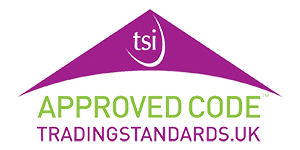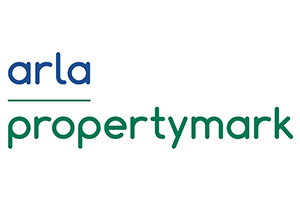FAQ’s for Landlords
Find the answers to some of our most frequently asked questions. If you can’t find what you’re looking for, then contact us and we will work to find the answer you need.
Our Services FAQ
Your Title Goes Here
Your content goes here. Edit or remove this text inline or in the module Content settings. You can also style every aspect of this content in the module Design settings and even apply custom CSS to this text in the module Advanced settings.
My tenant has served notice, when should I contact you?
What Type of Tenancy Agreement Do You Provide and How Is It Managed?
We offer two types of tenancy agreement: a private residential tenancy agreement and a company let agreement. Both options will include clauses that protect you, your property and your tenants, and copies of the agreement will be given to both parties for your records.
We can communicate with your tenants during the process of signing the agreement and with your permission, we can sign the tenancy agreement on your behalf.
Once the inventory is completed and the tenant has moved in, management of the property is returned to you but rest-assured we are always on hand during the course of the tenancy should you need us.
Can You Explain the Process of Tenancy Deposits?
When your new tenant has paid their deposit, it must be placed in a third party holding scheme within 30 working days of the tenancy start date. Once the deposit has been registered with the holding company, you must provide written confirmation to your tenants.
When the tenancy comes to an end, it is the responsibility of the landlord to contact the holding company and request the deposit be returned. If your property requires any repairs or cleaning to be carried out that you believe is the responsibility of your tenant(s) then you can advise the holding scheme of how much of the deposit should be returned. The company will then contact the tenant on your behalf outlining the sum you are happy to return and will seek their approval for this amount. In some cases, if the two parties cannot agree, the money will remain with the third-party company until an agreement can be reached.
Can You Recommend Marketing for My Property?
How Can I Ensure My Tenants Are Genuine?
If My Property is Unfurnished, Will I Still Need an Inventory?
Yes. An Inventory and Condition Report provides both written and photographic evidence detailing the condition of all aspects of your property including its contents, if applicable. This includes the colour and condition of the property’s walls, floors, light fittings, windows, gardens, out-buildings etc. A report will be prepared at the start of a tenancy agreement and updated for comparison at the end.
Do You Offer Property Inspection Services?
Yes. A property inspection or visit should be carried out within the first three months of a tenancy agreement and then at regular intervals thereafter for the duration of the tenancy.
Inspections are not designed to interfere with your tenants and are instead focused on property maintenance, to ensure a safe environment for those living in the property and to allow tenants to voice any concerns they might have. It also allows us to check that the terms of the tenancy agreement are being upheld.
Where a cause for concern may arise regarding your residents, it will be reported to you and we can advise on how you can resolve potential conflict.
Your Title Goes Here
Your content goes here. Edit or remove this text inline or in the module Content settings. You can also style every aspect of this content in the module Design settings and even apply custom CSS to this text in the module Advanced settings.
Do I Need to Tell My Mortgage Provider and Insurance Company That I Am Letting My Property?
Yes. It is important that both parties are aware of your change in circumstance. This is because not all mortgages or insurance policies are suitable for rental properties and may not cover you if anything were to happen. Before you can consider letting a property, speak with your mortgage and insurance advisors to find out more about switching plans.
What is my Landlord Registration Number?
In order to let your property, all landlords are required by law to be registered with the local authority where your property is located. Once you have registered your property you will receive a Landlord Registration Number that will then be required for future tenancy agreements.
What Fire Detection Does My Property Require?
Smoke alarms are a necessity in every property. Following guidance by the Scottish Government, smoke alarms should be placed in the room that is most frequently used by the occupants. They must be placed in every circulation space of each storey of the property (such as hallways and landings). There must also be one heat alarm in every kitchen. From February 2022 all alarms must be hard wired to meet new Scottish regulations.
What Is an EICR and Do I Need One?
Do I Require Carbon Monoxide Alarms?
What Is a PAT Certificate and Do I Need One?
A Portable Appliance Test (PAT) certificate is required to confirm the safety of electrical appliances within the property.
Although there is no legal requirement to have appliances tested more frequently than five years, many landlords take the responsible action of updating their PAT certificate every two years. It is worth noting that these tests are best carried out when the property is without tenants otherwise a list of items to test will be required by the tester. The landlord is not responsible for PET testing any items belonging to the tenant.
What Is an EPC and Do I Need One?
An Energy Performance Certificate (EPC) is a legal requirement for every tenancy. The certificate indicates how energy efficient a property is and provides a guide to potential yearly running costs.
These certificates are valid for ten years at which time we recommend you renew for a more up-to-date summary.
What Is an LRA and Do I Need One?
A Legionella Risk Assessment (LRA) is a legal requirement for all tenancy agreements in Scotland. A potentially fatal disease, it is important for you to arrange an LRA in order to advise tenants of the risks of legionella in relation to your property and what steps are recommended to mitigate those risks.



